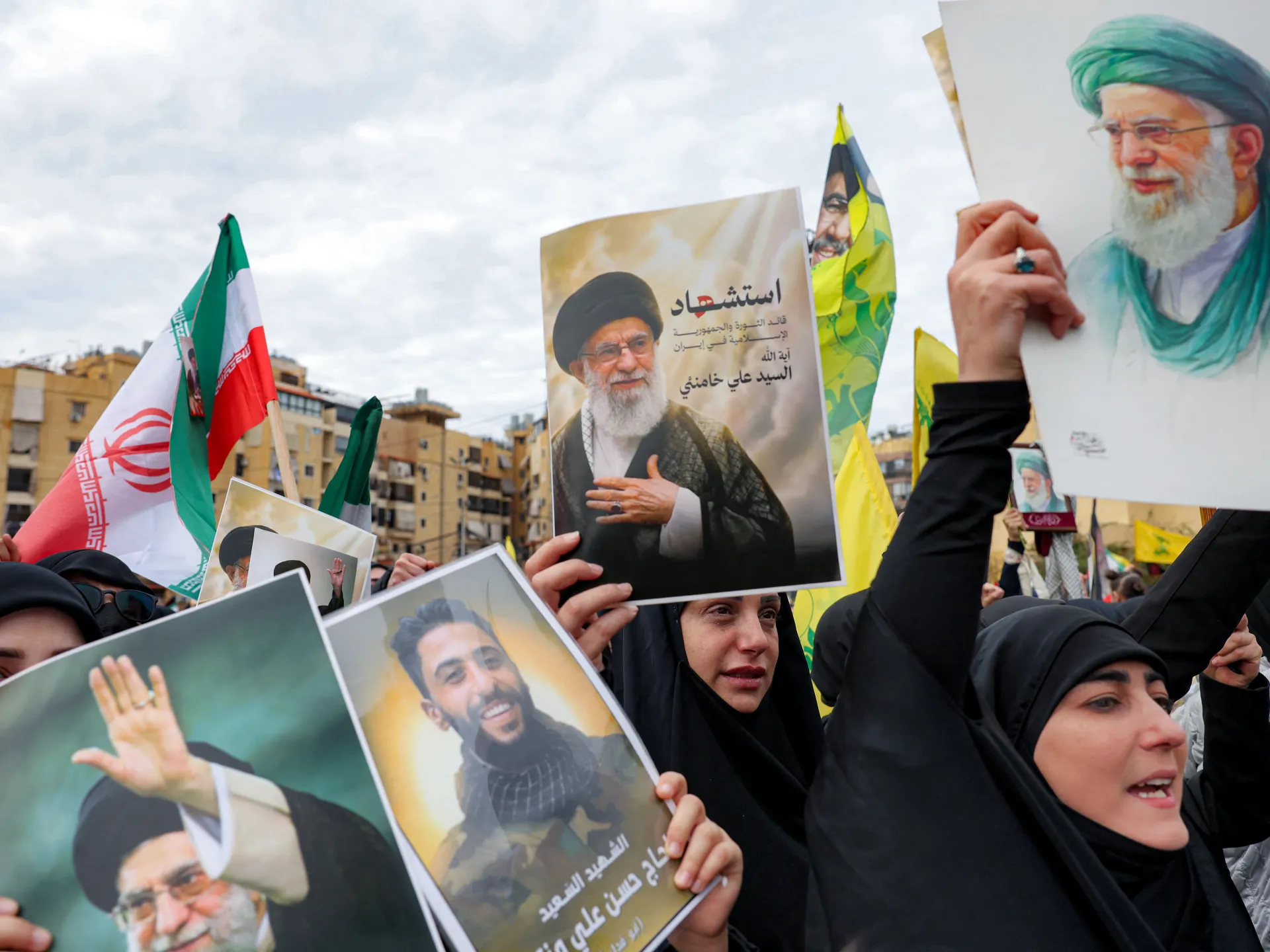Hezbollah promises to confront US, Israel over Khamenei killing | Israel-Iran conflict News
The Lebanese armed group has not taken action against Israel or US assets since the attacks on Iran began on Saturday.
Published On 2 Mar 2026
The Lebanese armed group Hezbollah has pledged to fulfil its duty in “confronting aggression” after attacks by Israel and the United States killed Iranian Supreme Leader Ayatollah Ali Khamenei.
In a statement on Sunday, the Iran-aligned group offered condolences for Khamenei, who was killed along with other Iranian leaders in a joint US-Israeli attack on Iran early on Saturday.
Recommended Stories
list of 3 itemsend of list
“That the criminal American and Zionist [Israeli] aggression targeted our guardian, our leader, the leader of the Nation, Imam Khamenei (may his soul be sanctified), along with a group of leaders, officials, and innocent sons of the Iranian people, represents the height of criminality,” the group said.
“We will fulfill our duty in confronting aggression, confident in Allah’s victory, guidance, and support… No matter how great the sacrifices, we will not abandon the field of honour and resistance, nor the confrontation against American tyranny and Zionist criminality, in defence of our land, our dignity, and our independent choices,” it added.
So far, Hezbollah, which operates as a largely independent armed force within Lebanon, has not taken action against Israel or US assets since the attacks began on Saturday.
Lebanese President Joseph Aoun said on Sunday that “the decision of war and peace rests solely with the Lebanese state”, after an emergency meeting of the country’s Higher Defence Council.
On Saturday, Lebanese Prime Minister Nawaf Salam said he would not accept anyone “dragging the country into adventures that threaten its security and unity”.
“In light of the serious developments unfolding in the region, I once again call on all Lebanese to act with wisdom and patriotism, placing Lebanon and the Lebanese people’s interests above any other consideration,” Salam said in a statement sent to the Reuters news agency.
Lebanon is continuing its attempts to recover after a yearlong war between Hezbollah and Israel that ended after the November 2024 ceasefire. However, Israel has continued to target Lebanon in violation of the agreement and has maintained several military outposts within Lebanese territory.
Thousands mourn in Beirut
On Sunday, Hezbollah organised a gathering of thousands of supporters in the capital, Beirut, to mourn Khamenei, as they chanted, “Death to America, death to Israel”.
Zainab al-Moussawi, a 23-year-old teacher, told the AFP news agency that the death of Khamenei was “very painful. It is a tragedy.”
“It felt just like the martyrdom of the Sayyed,” she added, referring to Israel’s killing of former Hezbollah leader Hassan Nasrallah in 2024.
Hezbollah also called on mosques to recite the Quran and organise other mourning ceremonies in different parts of the country where the group holds influence to mark Khamenei’s death.



